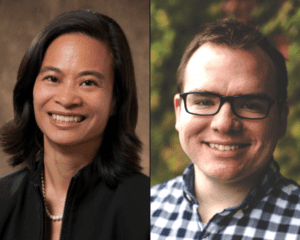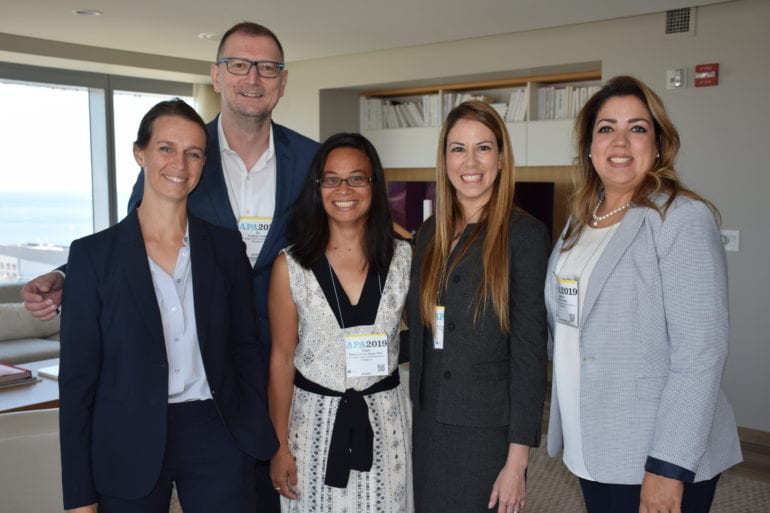 Who we are
Who we are
Dr. Patricia Perez: I am an Associate Professor in the International Psychology (IP) Department, Online Campus, at The Chicago School of Professional Psychology (TCSPP).
Rich: I am a second year, IP PhD student with the Online Campus at TCSPP. I also serve as a graduate assistant and teaching assistant for the IP Department.
Why we wrote this piece together
Dr. Perez: From a faculty perspective, I have often wondered several things about students’ assumptions regarding the role of faculty and our abilities to support their career aspirations and attainment of these goals. In particular, I have often heard students reporting that 1) they need to wait until they get a degree before reaching out to us for professional opportunities, 2) you must be too busy to respond or talk to me, and 3) not sure you can direct me as I am interested in a field which is not part of your area of expertise. Our perspective highlights the need to dispel some of these “myths” in our work together as mentor and mentee.
Rich: In tandem with Dr. Perez, there are fears that need to be corrected from the students’ perspective. This piece will hopefully highlight the idea that faculty and students can work together in a mentor-mentee relationship to help build the students as professionals.
Why don’t students connect with faculty?

Rich: I believe it is due to any number of reasons. I know from my own experience, in hearing a faculty member say “this is the project I am working on,” I never thought that I’d be experienced enough for them to want to actually have me work with them. In talking with a few of the PhD students, I have found that self-doubt is a main reason for students to not contact teachers, although lack of time seems to be another factor. I have also seen that there are some misconceptions concerning faculty time, desire to work with students, and desire to mentor students.
There is always an excuse to not do something but we should start making excuses to work on our professional career. Dr. Perez has been a huge help, and in looking back, our mentoring relationship started out in a IP foundations class. We met at residency in Chicago, then from there I had questions on publishing. She was more than willing to have a meeting and chat with me and answer all of the questions I brought to the table.
What do we offer in our roles as faculty?
Dr. Perez: As faculty, I find my role is not only to teach but to mentor and guide students in the field of International Psychology and beyond. I do this in several ways. First, when a student enters any of our programs (certificate, Master’s or Ph.D.), they are assigned a faculty mentor as the point person within the Department. Secondly, during our departmental residencies, students have a chance to speak one-on-one with faculty to discuss anything from programmatic questions, work-life balance, and/or opportunities to build their resumes through faculty-led research or consultation projects. Lastly, we have IP Town Hall meetings that oftentimes highlight an IP faculty’s personal and professional background to demonstrate ways in which students can build on their skills and talents as emerging IP professionals.

Rich: Students need to start “knocking on the doors” of the faculty they admire, desire to be like, or just get along with. Just ask them if they’d be willing to be a mentor. Students can also offer to lighten the load for faculty, and we can learn so much by doing this. As a graduate assistant, I help out with anything the IP Department team needs at that time. With our projects, I am able to offer a student perspective which can be invaluable to keeping our IP programs in a progressive state. Students offer more than they realize. I also build skills such as project management, IP competencies, and networking that allow me to be more competitive in the field when I graduate.
What is one thing you’d like other students or faculty to know?

Dr. Perez: I think students should know that we are here to support you and your goals! Don’t be hesitate to reach out to us! For my colleagues: Our students are our leaders of tomorrow. Teaching as a profession includes mentorship and guidance. Therefore, it is important to position ourselves as such.
Rich: I would like students to know that faculty members are open to mentoring. I have not met a faculty member at TCSPP that has not been willing to talk to me. Reach out, get the ball rolling, and never leave it on your side of the court.
Learn more about The Chicago School
The Chicago School provides you with an exceptional education rooted in innovation, service, and community. Enroll in one of our 30 academic programs today, or request more information by filling out the form below!

